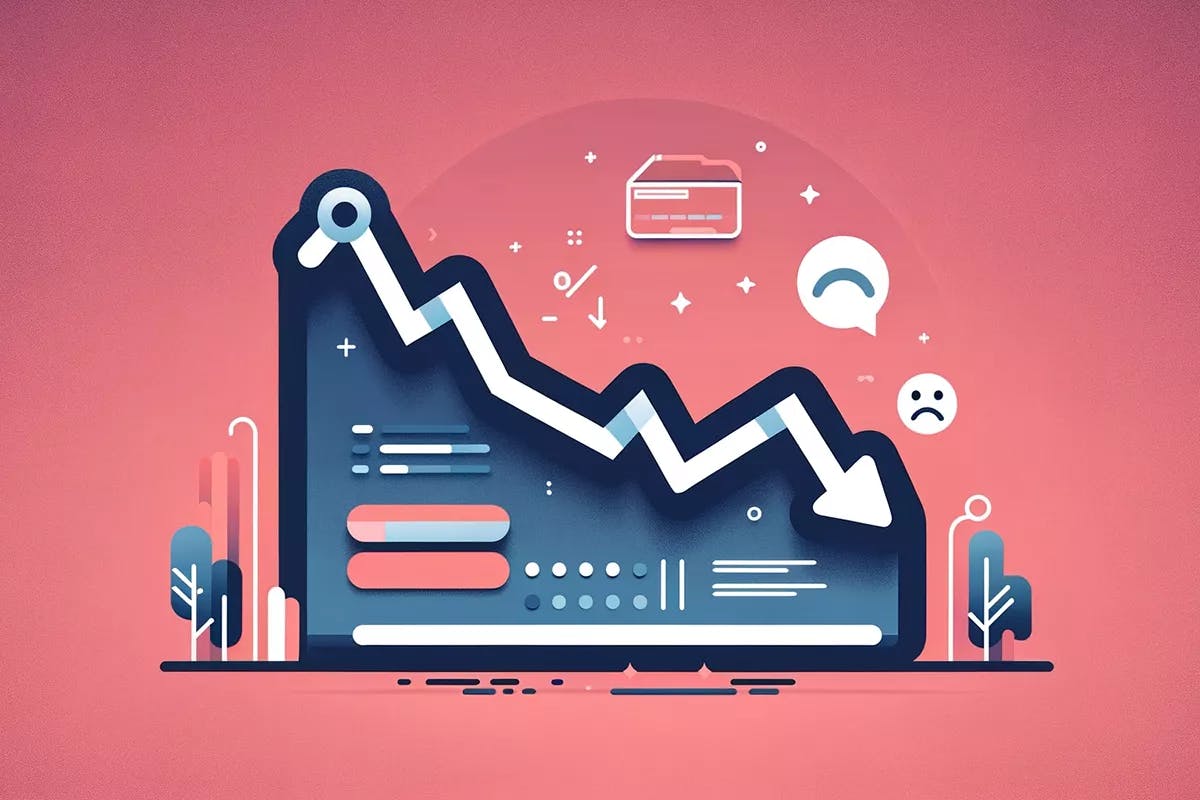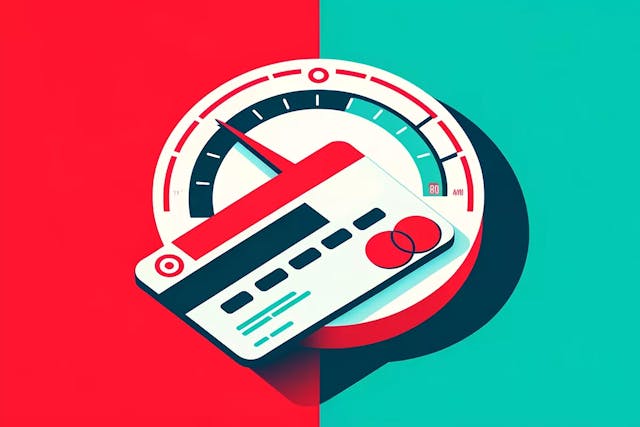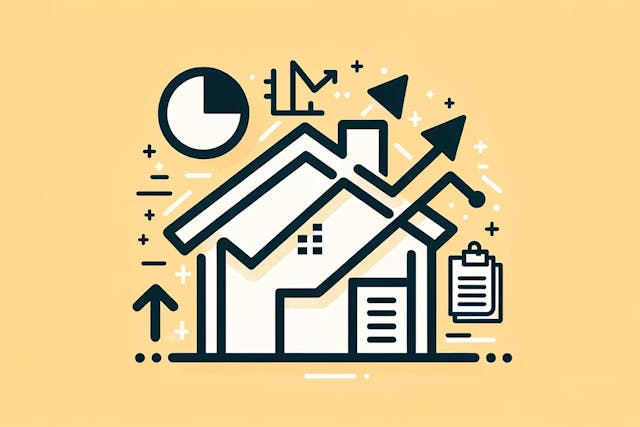Unexpected credit score drops often result from factors like report errors or unrecognized credit activities. A sudden decrease in your credit score can be alarming, especially if you haven’t made any obvious financial missteps recently. If you’re wondering, “Why did my credit score drop?” — we’ve got you covered. In this article, we will uncover the common culprits and how they can affect your financial standing without your immediate knowledge.
1. Late or Missed Payments
Your payment history is a big deal when it comes to your credit score, making up 35% of your FICO score. Even being a little late on payments can be a reason why your credit score drops by 5 or more points, especially if they’re reported as 30 days late or more.
2. Applying for New Credit
Applying for new credit results in a hard inquiry on your credit report, which can temporarily dip your credit score. While a single inquiry may not be a big deal, multiple inquiries in a short timeframe can be a red flag to lenders. This signals that you are financially unstable, making you appear like a higher-risk borrower.

However, not all credit inquiries are created equal. There are two types of inquiries: soft and hard. A soft inquiry occurs when a lender or creditor checks your credit report for pre-approval offers or as part of a background check. Soft inquiries do not affect your credit score.
A hard inquiry, on the other hand, occurs when you apply for new credit, such as a credit card or loan. This may be why your credit score drops up to 100 points after opening a credit card. Moreover, hard inquiries remain on your credit report for two years, but their impact on your credit score lessens over time. So, if you plan to apply for credit soon, it’s best to be strategic about your applications and limit them as much as possible.
3. Derogatory Marks
Derogatory marks on your credit report may also be why your credit score went down. They signify that you didn’t repay a loan as agreed, stemming from issues like late payments, bankruptcy, lawsuits, foreclosure, and tax liens. Unlike hard credit inquiries, these marks don’t disappear from credit reports in two years. Instead, they can remain on your credit report for seven to ten years, affecting your ability to secure favorable credit terms.

Fortunately, the impact of a derogatory mark diminishes over time. Moreover, you can have specific derogatory remarks removed from your credit reports. So, if you are wondering, “Why did my credit score drop?” and come across a derogatory remark on your report, start by verifying its accuracy. If it’s erroneous, contact the credit bureaus to initiate a dispute.
4. High Credit Utilization
It’s important to keep your credit utilization ratio in check. This ratio is the amount of credit you use compared to what you have available. Ideally, you should keep this ratio under 30%. Going over this limit may be why your credit score may drop by 20 points or more. Maintaining a low credit utilization ratio shows you use your credit responsibly. For instance, if your credit card limit is $1,000, your credit card balance should not exceed $300.
To lower your credit utilization, you can request higher credit limits on your existing credit cards without increasing your spending or reducing the amount you charge to your credit card. Alternatively, you can use a virtual Cushion card or BNPL to pay for regular payments or expenses.
By choosing Cushion, you’re not just managing your spending better; you’re also turning everyday payments into opportunities to strengthen your credit history. With Cushion’s virtual card, your payments are organized and reported, helping you maintain a healthy credit utilization ratio and potentially enhancing your credit score.
5. Changes in Credit Mix or Account Closures
Before closing a credit card you don’t use, make sure to consider the consequences. Closing a credit card account will not only increase your utilization ratio, but it may also trim down the length of your credit history. Both actions can negatively impact your credit score, explaining why your credit score can drop 10 points or more. Remember, your credit history length counts for 15% of your FICO Score, and a longer history is better for your scores.
However, if you’ve made all your payments on time and your account is closed in good standing, it could stay on your credit report for up to 10 years, contributing to a positive payment history.
Unless a credit card is burning a hole in your wallet with a hefty annual fee, or it’s just too tempting and leads you to overspend, it’s usually a good idea to keep it open. This way, you hold onto your credit limit and keep your credit history lengthy.
6. Credit Reporting Errors
Spotting mistakes on your credit report, like wrong account details or transactions, can lower your credit score. That’s why it’s important to regularly check your credit report for inaccuracies and dispute any errors with the credit bureaus. Even though it’s not common, mistakes can still occur, and incorrect personal data or payment history may be why your credit score dropped 40 points.

7. Identity Theft
An identity theft may be another reason why your credit score dropped 50 points. It is a major concern not only in the United States but worldwide. In 2024, the Federal Trade Commission received 5.7 million reports of identity theft and fraud, a significant increase from the previous year’s 4.7 million.

If someone uses your information to open unauthorized accounts or perform fraudulent transactions, it can damage your credit score. Therefore, it is advised to regularly monitor your credit report to detect and resolve such issues promptly. If you notice your credit score going down even when you pay on time and find any inaccurate or suspicious information, immediately dispute it with all three credit bureaus.
Summary
Understanding why your credit score dropped is the first step in addressing and rectifying the issue. By keeping track of your payments, managing your credit utilization, and monitoring your credit report, you can take proactive steps to maintain or improve your credit score, ensuring your financial health remains strong.



